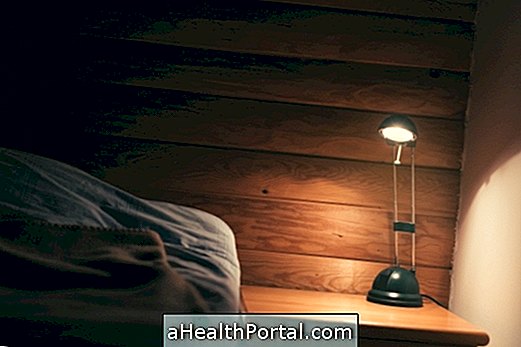Sexonia is a sleep disorder that causes a person to have sexual behaviors during sleep, such as groaning, touching the partner, and even initiating movements similar to intimate contact or masturbation.
Usually, this type of behavior is more common in men, but it can also affect women, especially during periods of great stress and fatigue. In addition, frequent use of alcohol or drugs is also at greater risk.
If sexus is suspected, it is advisable to consult a psychologist, or a doctor who specializes in sleep disorders, to confirm the diagnosis and initiate treatment, which is usually done with medicines and psychotherapy.

Main symptoms
The main symptom of sexonia is the emergence of sexual behaviors during sleep, such as:
- Make sounds with the mouth, like groans;
- To feel the companion or the body;
- Try to initiate intimate contact;
- Get up from bed and go to bed where someone else is;
- Start masturbation movements.
Typically, those who suffer from sex do not have any recollection of the behaviors they had during sleep, so people who share the bed or home may be the first to notice that something is happening.
When confronted with their behavior during sleep, the person may present with several negative feelings, such as denial, shame, anger or sadness, which can further aggravate sex-related crises.
How is the treatment done?
Treatment should be started as soon as possible to prevent the sex worker from continuing to have negative feelings about their behavior. In most cases, this treatment is done with a combination of remedies and psychological therapy.
The most commonly used drugs are antidepressants and anxiolytics, such as Alprazolam or Diazepam, as they allow sleep to be calmer and deeper, decreasing the chances of having sexual behaviors.
In addition, to increase comfort, the person during treatment may also be advised to sleep in a room alone and with the door closed, for example.





















